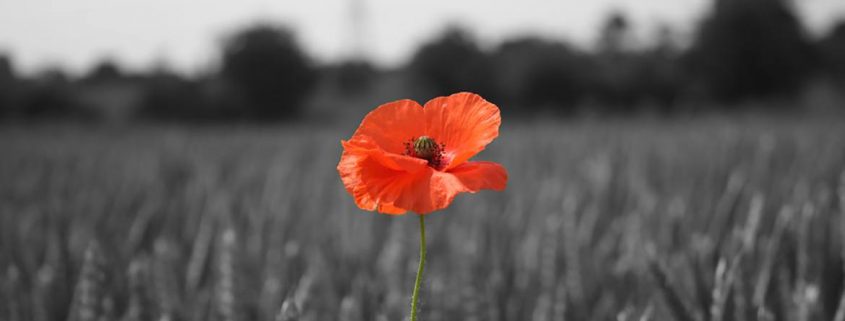Warden’s Thoughts 5
I am always moved by remembrance week, but my emotions are mixed. There is obviously the feeling of pride as I remember members of my family who died in the First World War and there is the sense of gratitude towards all of my countrymen who made the ultimate sacrifice. Here at St. Columba’s we will honour in particular the sons of the College who lost their lives, but I am also aware that we are not just remembering those who died in the world wars, but all who die in wars, wherever they be from, and that makes things a little more complicated.
Last March in South Africa I found myself addressing the school I was running at the end of an anti-racism week and I felt very uncomfortable. How could I, a white Englishman, talk to a church full of black children and teachers, whose lives are still affected by the after-effects of a cruel racist system, and a few white teachers, who were Afrikaans, about the evils of racism. After a few attempts to put together a talk I threw them all out and instead decided on a different tack. In the assembly I started by turning to the black people present, the vast majority, and apologising for the arrogance of my people in the way that we had treated them, causing untold amounts of suffering and humiliation. Then I turned to the Afrikaans teachers and apologised to them too, because we had caused a pointless war (the Boer War 1899-1902) in our greed for land containing gold and diamonds, to which we had no justifiable claim at all. And because the Afrikaans people put up an annoying display of resistance, we rounded up their women and children and stuffed them into concentration camps, where thousands died of disease and starvation. Memories are long and the Afrikaaners still remember those injustices. There was no point in pretending that I understood their suffering because that would be untrue and patronising. My people may not have invented racism but we are more guilty than most. Cecil Rhodes, the arch-colonialist, said that to be born British was to win first prize in the lottery of life. I love my country but an attitude like that led to us imposing British rule on half the countries of the world, thinking that we were doing them a favour and pitying anyone who was not ‘one of us.’
In April I visited Isandlwana and Rorke’s Drift, two famous sites of the Zulu Wars of 1879 and also Spion Kop, site of a major British defeat in the Boer War. I couldn’t help asking myself what on earth the British were doing there, so far from home, trying to annex someone else’s land in the name of the Great White Queen. Thousands of Welshmen from the town near where my family home is died at Isandlwana. Why? I have great admiration for those who died, in many cases very heroically, but that does not mean that I need to respect the desire for world domination that brought them there.
I am, of course, not decrying the role of my countrymen in numerous conflicts around the world, some of which were undoubtedly motivated by a desire to defend basic freedoms and stand up to tyranny. However it is good for me personally to remind myself that my own people have often been the cause of conflict. There is no room for anyone to be self-righteous when it comes to remembering the fallen. And just as I could not preach to black or white South Africans about racism, I need to be very careful speaking about my country’s heroic defence of freedom in the last century…not everyone may see it that way! Love of country is a fine thing, but it does not mean that one should be blind to its faults and failings.
We are now a very multi-racial school and all the better for it, because we are preparing our young people for a multi-racial society, in which they will rub shoulders with people of different beliefs, cultures and languages. We remember with great pride the young men from the College who fell on the battlefields of France and elsewhere in the world in the last hundred years, but we do so in order to look forward to a world where such conflicts are only in the history books. We at the College in 2016 need to pledge ourselves to promoting understanding and appreciation of our differences, so that we can play our part in that process.
Mark Boobbyer, November 8th 2016.




